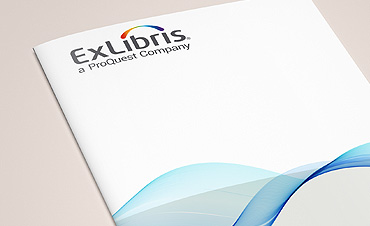May 10, 2010
Preservation planning, preservation actions, and the handling of very large collections of digital objects are keystones of this major product release
Jerusalem, Israel — May 10, 2010. Ex Libris® Group is pleased to announce the release of version 2.0 of the Rosetta digital preservation system. Rosetta empowers libraries and archives around the world to fulfill their mandate of collecting and preserving cumulative knowledge in digital format for the enjoyment and use of generations to come. Now live at the National Library of New Zealand, version 2.0 will be rolled out to all Rosetta customers over the course of 2010.
The Rosetta digital preservation system enables institutions to manage, preserve, and provide access to documents in perpetuity—institutional documents, research output in digital formats, digital images, Web sites, and other digitized and digitally born materials. Rosetta supports the acquisition, validation, ingest, storage, preservation, and dissemination of digital objects that are in various formats and originate from many sources, and keeps these objects secure while allowing institutions to implement multiple digital preservation policies and strategies.
Scalability is a key facet of version 2.0, enabling institutions to preserve an ever growing amount of digital material. Rosetta has already successfully ingested, processed, and stored more than 50 million records and can scale up to support even larger collections.
Highlights of the new Rosetta version include:
- Preservation planning and actions: Conforming to the Open Archival Information System (OAIS) standard, Rosetta enables institutions to manage objects in multiple digital formats, detect and mitigate format-related risks, and perform a variety of preservation actions.
- Digital format library: Based on the PRONOM global digital format registry, the Rosetta format library enables institutions to add and manage formats and to identify risks for all formats.
- Access rights exceptions: Rosetta enables libraries to create exceptions and temporary changes to institutional policies that determine users’ access rights.
- Enhanced plug-in management: The new Rosetta plug-in manager provides libraries with enhanced control over selected aspects of the system. Users can easily embed self-developed or third-party plug-ins for the extraction of metadata , the identification of preservation risks, and other purposes.
- Versioning of objects: By storing all versions of digital objects in a permanent repository, Rosetta enables institutions to restore specific object versions when necessary.
”Rosetta’s digital preservation technology provides the essential software for our digital preservation program,” commented Steve Knight, program director of preservation research and consultancy at the National Library of New Zealand. ”Having completed the beta testing of this new version, we are delighted to have gone live with Rosetta 2.0. The many enhancements added to version 2.0—including preservation planning and actions and the library of digital formats and risk detectors—are a major boost to our digital preservation program, which is now in its second successful year.”
Ido Peled, Rosetta product manager at Ex Libris, noted: ”Version 2.0 is a major milestone for Ex Libris, and we are thrilled to see it in action at the National Library of New Zealand. As with all our new product versions, we worked closely with Rosetta customers to identify the essential features for this version. As more institutions around the world join the expanding Rosetta customer community, we are looking forward to collaborating with them to shape future versions of Rosetta.”
About Ex Libris
Ex Libris is a leading provider of automation solutions for academic, national, and research libraries. Offering the only comprehensive product suite for electronic, digital, and print materials, Ex Libris provides efficient, user-friendly products that serve the needs of libraries today and will facilitate their transition into the future. Ex Libris maintains an impressive customer base consisting of thousands of sites in more than 75 countries on six continents.
Dedicated to developing creative solutions in close collaboration with customers, Ex Libris enables libraries to maximize productivity and efficiency and, at the same time, greatly enhance the user experience. By empowering users to discover and obtain the information they need, libraries ensure their position as the bridge to knowledge.
For additional information on Ex Libris Group, see our Web site, visit our Initiatives and Commentary blogs, and follow our Twitter page.




